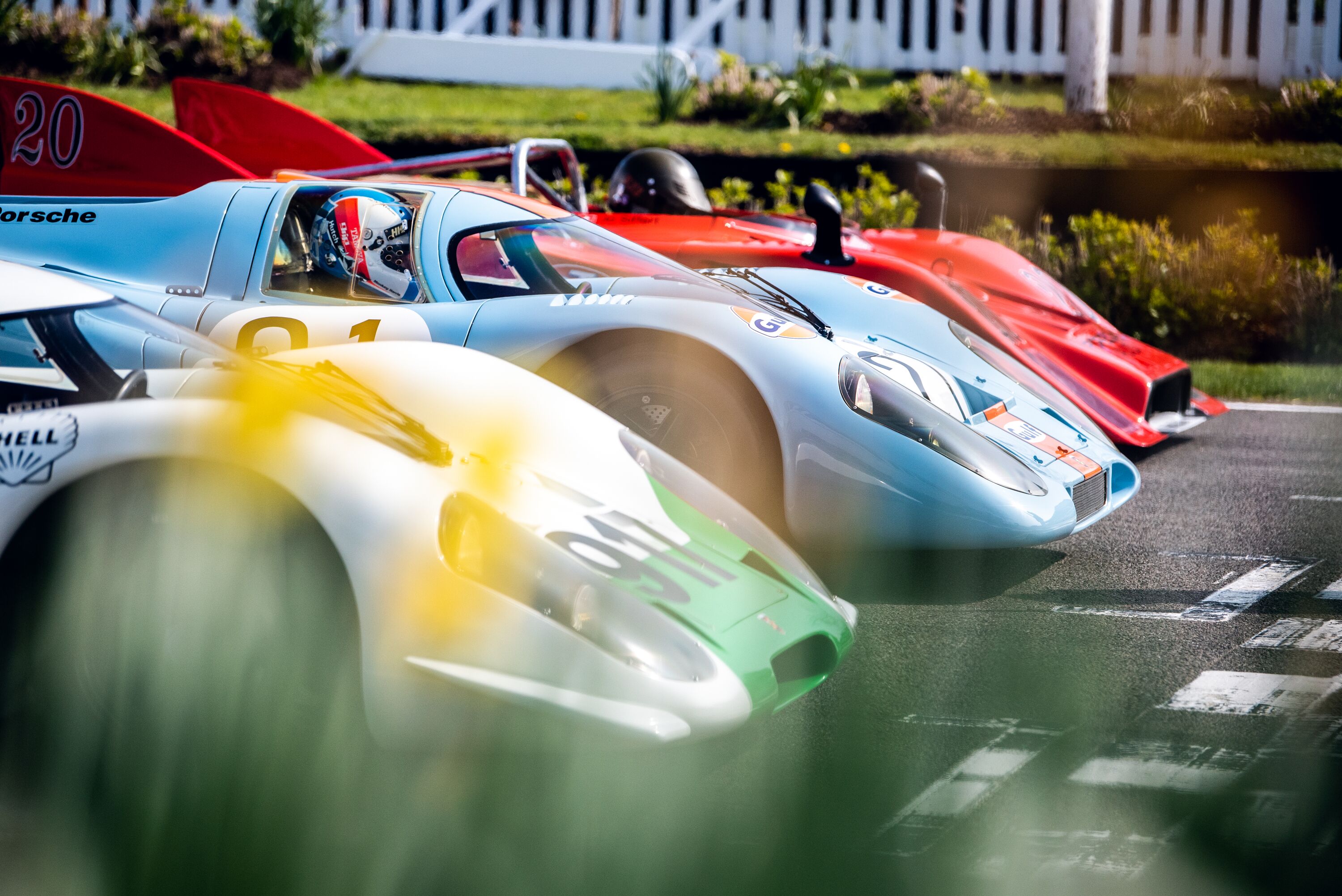The two sides of Verstappen were on show in Spain
Max Verstappen made McLaren work so much harder than expected for its third 1-2 of the season at Sunday’s Spanish Grand Prix. Sure, Oscar Piastri was back in imperious form for his fifth victory of the campaign, but Red Bull’s aggressive three-stop strategy versus two for the papaya cars certainly kept Lando Norris on his toes.
That’s not what the Barcelona race will be remembered for, though. In the words of George Russell, Verstappen “let himself down” by appearing to intentionally drive into the Mercedes after a late safety car created a burst of activity that shook up the order. For many, the subsequent ten-second time penalty that was added to Verstappen’s result allowed the four-time World Champion to get off lightly.

The red mist descends
A sudden loss of oil pressure forced Kimi Antonelli off into a gravel trap and triggered the appearance of the safety car late into the Grand Prix. As the race resumed, Verstappen held a huge twitch out of the final corner which so easily could have sent his Red Bull flying backwards into the pitwall – a familiar accident we’ve seen many times before at the Circuit de Barcelona-Catalunya.
He just about got away with it, living on his wits as always. But the moment inevitably left him vulnerable to attack from Charles Leclerc, whose Ferrari duly relieved him of third place down the start-finish, albeit not without slight contact. Verstappen was now fuming, claiming Leclerc should hand the place back. The stewards viewed it as a racing incident, with both cars edging towards each other and the collision — despite the high speed — resulting in little consequence for either driver.
Then at Turn 1, Verstappen’s state of mind darkened further when Russell’s Mercedes dived up his inside, forcing the Red Bull to take the shortcut and resume at Turn 3 still ahead. Now, Formula 1’s blessed racing guidelines by which drivers must live by led the Red Bull pitwall to judge that as Russell had been fully alongside, he had therefore won the place, even if the move was far from done when Verstappen was forced to change his trajectory.
It’s easy to understand why Max should feel the team’s call to let Russell past was unjust — because outside of what the guidelines stipulate you could well argue the case. Then again, this is an era in which carefully worded guidelines rule. Verstappen knows that and is all too familiar with them, having used them to his own benefit on multiple occasions in the recent past.
He knows the score. But whatever the case, it doesn’t justify what appeared to happen next.

Did he do it on purpose?
As they approached Turn 5, Verstappen, on the inside line, backed off to seemingly allow Russell through — only to then accelerate into the corner and nudge into Russell. It didn’t look good, as race winner Piastri said later, taking some care with his wording. In the podium’s ‘green room’, team-mate Norris had been picked up saying something far less tactful: “I’ve done that — in Mario Kart.”
Afterwards, Verstappen didn’t want to discuss the incident in much detail and labelled it a “misjudgement” — far from admitting he’d done it on purpose. But the general consensus was that there was little doubt. It was petulant and downright dangerous.
“Totally unnecessary and sort of lets him down,” was the verdict of Russell, with whom Verstappen has plenty of form. There’s little love lost between this pair, dating back years. “I don't know what he was thinking,” Russell continued, talking to the BBC and other media outlets. “It doesn't really make sense to deliberately crash into somebody and risk damaging your own car, risk a penalty. In the end, I’m not going to lose sleep over it because I ultimately benefited from those antics.”

Does the penalty fit the crime?
He wasn’t the only one to gain. The ten-second penalty dumped Verstappen from fourth to tenth in the classified order, Russell rising to take the place he’d been scrapping for. It also meant Nico Hülkenberg inherited a superb fifth place to revitalise Sauber’s season, after the German sliced past Lewis Hamilton’s Ferrari for sixth on the road after the safety car. That meant a seriously dejected Hamilton ended up sixth, lamenting the “worst race I’ve experienced,” in a car that visually looked a handful.
In terms of the bigger picture, the apparent moment of red mist cost Verstappen much more. He leaves Barcelona now a significant 49 points down on Championship leader Piastri, with Norris ten behind his team-mate, so the moment has seriously dented the Red Bull driver’s chances of overcoming the McLaren pair.
Then again, as Verstappen said, he’s never claimed to be in a genuine Championship fight this year. Only his own brilliance has kept him in touch with the superior McLarens up to now. It was a long shot even before Sunday, so perhaps Verstappen will just shrug it off, as tends to be his way. As he said on Sunday afternoon, he never bothers to regret anything anyway. Like flawed greats before him, he’s the type of character who appears able to justify any action he takes, no matter how distasteful it might appear to the outside world. It’s just who he is.
But did he get off lightly in Spain? Nico Rosberg, on Sky F1 commentary duties, certainly thought so. The 2016 World Champion believed Verstappen should have been disqualified for the incident and that ten seconds was far from enough.
Whatever, it should give the Dutchman something to think about in Canada, because the three penalty points he also earned on his licence takes him to 11 — just one from a one-race ban. A clutch of those points were earned last year and will drop from his score after Montréal, so the threat isn’t long-lasting. But it will be all too real during the Canadian Grand Prix weekend in mid-June.
He’ll need to keep his nose clean if he wants to avoid a red card for Red Bull’s home race in Austria, which is always invaded by his own passionately partisan fans. He’d be letting them down if he goes missing through his own actions on track.

Setting a bad example
Russell also made the point that such driving, which should be beneath a great Champion, sets a dreadful example to young racing drivers on the way up. Verstappen apologists dismiss the view as trite, and as Verstappen himself childishly said, perhaps next time he’ll bring tissues. But actually, Russell’s viewpoint stands up.
In the past, both Ayrton Senna and Michael Schumacher lowered the bar in terms of what is deemed justifiable on track. Whatever it takes to win has become a mentality that has gained a certain degree of acceptance in the past three decades, which has allowed drivers with a hard-headed mentality to explain away their actions. There is a trickle-down effect for the rest of motorsport.
Does someone like Verstappen really need to sink so low and drive into rivals? OK, the speed was modest, so let’s not get too carried away by the danger aspect. But if it really was intentional, as it appeared to be, it amounts to a racing driver’s worst crime, whatever the speed. And it will only enhance Verstappen’s reputation as someone who can’t really be trusted in wheel-to-wheel combat. Is that really the reputation he wants to carry with him? Perhaps it is. If so, that’s disturbing in itself.
Yes, once again we saw the two sides of Max Verstappen on Sunday. He is a brilliant racing driver, performing at the absolute peak of his powers, especially now when the odds are staked against him. It’s just a shame that his brittle temperament casts a long and lingering shadow over what should be considered one of the great F1 careers.
Images courtesy of Getty Images.
formula 1
f1
f1 2025
Spanish Grand Prix
Max Verstappen
Red Bull








